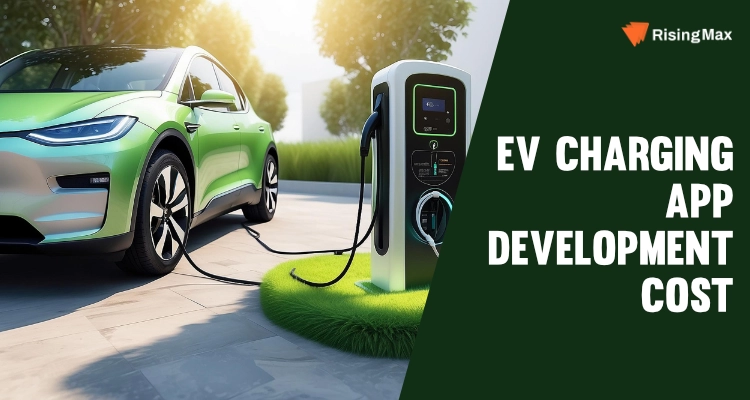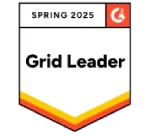It’s 2024 now! This is a year inclining more towards a greener mindset, causing people to switch to more sustainable alternatives than ever. From reducing waste generation to switching to electric vehicles, the world indulges in every way possible.
Many businesses are leveraging this opportunity by offering lifestyle-changing solutions. One of them includes introducing multiple models of electric vehicles. Besides, the industry is experiencing a significant boom and is becoming a billion dollar one. It will always be smart to invest in something like that. All you need to do is find the market’s needs and a way to offer that.
How about we launch an app for EV charging solutions? Let’s answer it with a big YES.
The rising number of electric vehicles has also raised the number of charging stations, but locating and managing charging with them is necessary. This could be challenging, but not when you have a ready-to-implement solution like a charging management app.
Now that you have the idea, the next step is to find an EV charging app development solutions provider. However, you must know what, how, and why before doing so. In this blog post, let us walk you through all these similar concepts.
Look no further for EV charging app development solution?
Reach out to our experts and turn your idea into reality by deve an EV charging app.
How Much Does it Cost to Develop an EV Charging App?
Now that you have conceived the idea and learned how to execute it let’s learn about the pricing to actualize it. The EV charging app development cost can range from $15,000 to $60,000. However, multiple factors can affect the quotation. Look at the section we will discuss further to know about the factors that can affect the pricing of developing an EV charging app.
Platform
The platform you build your application for can significantly influence the pricing. Building on only one (android or iOS) can be cost-effective. However, in cases where you have to cater to a broad audience, choosing multiple platforms can help.
Tech Stack
Tech stack refers to technologies stacked to create an application. It is important and major deciding factor for the scalability and performance of your app. However, picking advanced technologies also means adding to the EV charging app development cost.
Intricacies Involved
Applications with basic requirements and functionalities can be cost-effective. However, adding advanced processes like integrated payment systems, user analytics, and even real-time tracking can affect the cost.
User Interface
The UI/UX of your app can significantly impact user satisfaction and experience. Accessibility and ease of use are just a few factors you must consider here. However, just like functionalities, complexities you add to the user interface can affect the overall cost.
Maintenance
Many ignore the upkeep of an application in financial planning. These services are important in keeping your app compatible with advancements. However, maintenance is another factor determining the EV app development cost.
Development Team
The cost of development can differ depending on the location. Besides, the size of the team you choose can also impact the pricing. If you hire a huge team, it can speed up the process but can increase the labor costs.
App Type
You see, there are different types of apps for EV charging development. While they all cater to the same needs, the difference arises based on the location they are used for. Based on the usage, not every app will use all the features, resulting in a difference in cost. We will discuss it in detail in the coming sections.
Features
Another factor that can impact the EV charging app development cost is the number of features you choose to add. An ideal solution here is to find a balance between budget constraints and valuable features. Let us help you decide on the must-have features next.
What Are the Features You Need to Add?
We hope the previous section has helped you understand the factors that can affect the costs of EV charging app development. The next part will discuss the must-have features you need to deliver EV charging solutions through your app.
Schedule
Many prevailing apps use a feature called schedule, which helps plan charging times according to suitability. With this feature, your audience can also learn about the availability of the appliance or the electrical rates. Scheduling charging can also help in setting a preference for a charging session.
Data and Insights
You can add another feature in the EV charging app: data and insights. This will give you the option to access details about charging available on the app. These insights can help your users alter the charging schedule according to their needs. They can also come in handy to understand expenses and usage.
Notifications and Alerts
Remember to tell your EV charging app solutions provider to include a feature for notifications and alerts. This will keep your users updated about the charging process. It can also update the EV drivers on any issues with the charging session, such as when charging is interrupted due to a power cut.
Manage Users and Chargers
This feature can help if your charging station has multiple users or if your vehicle gets charged in different stations. This could be in multi-family homes or apartment buildings. Different users also means separate data that needs to be sorted for every user. A feature that keeps the details separate can deliver a good user experience.
Find a Charging Station
Charging an electric vehicle at home is common among users. However, many instances can make them seek stations outside. For times like these, your app must have a Find a Charging Station feature. This can help your users access other stations. It must also tell information like the number and type of chargers, real-time availability, speed, and costs.
Mapping and Navigation
Your EV charging app solutions provider should add a feature dedicated to navigating users to nearby charging stops. You can include filters to help drivers sort as per distance, compatible connectors, and charging speeds. This feature can be time-consuming and help users deliver a smooth experience.
Payment and Billing
Your EV charging app should also have a dedicated section for payment and billing. Include multiple payment modes and an option to save the details. Your app must ensure that it delivers a smooth experience and does not require manual interference. It must also provide a clear update about the billing statuses.
Enable Sustainable Energy
This feature can help vehicle owners manage and schedule energy sources. Solar energy can be a source of electricity, and an EV can leverage it. However, managing the entire process is no simple task. One will need an external storage system, solar panels, and more. Adding a feature to support the process can help your app stand out.
Review
When picking a public charging station, an EV driver needs to consider factors like the cost and performance of the charger. However, it is also mandatory for them to know about the practical experience of a station beforehand. The station can also mention the additional amenities provided, if any.
Rewards
Who doesn’t love getting rewards and discounts? Barely anyone! So, how about having a feature where your users can leverage points and rewards? Your app can allow drivers to use charging stations regularly to earn points, which they can later take advantage of in public charging stations.
NEV Charging App Solutions
Partner with our team to develop and launch an EV charging app with outstanding features that will give you a competitive advantage in the market.
What Are the Types of Charging Apps?
An EV charging app offers solutions for finding charging stations, sharing feedback on services provided, and more. However, how can a single app do it all? Or are there different applications to organize things better? Take a look here:
Public Charging Apps
The term public charging is self-explanatory. It refers to the common charging stations meant for any EV user. A public charging app, thus, works by assisting its users in finding the stations nearby. A built-in map can help drivers find the directions to one such station. Clearly, an app like this will require you to include all the features and can cost you more. You can expect the costs to be around $30,000.
Home Charging Apps
A home charging app can help users manage the charging station only in the home. They are often built or brought by the charger manufacturers. They can simplify handling the charging status at home only. These apps support the convenience brought by related chargers. For it, you don’t need to have dedicated sections for rewards or mapping and navigation. This can clearly affect the cost equally. The costs can, however, start from $20,000.
App in the vehicle
These are in-built software programs that work by connecting with charging stations. These applications use real-time information, including charging speed, port availability, and battery status. These apps can help with charging functions in the absence of a smartphone. In the whole time we take to develop the application, you can use the period to connect with EV manufacturers to integrate the app within their vehicles.
How Can You Generate Money from an EV Charging App?
We hope that you have learned how much it costs to develop an EV charging app. But what about the revenue you have to generate? You have to cover the big bucks you have spent on the EV charging app. Do you know how to do that? In this section, we will discuss different ways you can generate revenue from your application. Read it here:
SUBSCRIPTION CHARGES
Through your application, you can offer many premium features at additional costs. These can include advanced route planning or exclusive reach to some stations. C’mon! You can be innovative with the features here.
TRANSACTIONAL CHARGES
With this model, you can make revenue from the transactions. You can charge a fraction of transactional value for certain services. These include making payments using your EV charging application or booking a station.
PARTNERSHIPS
You can partner with related parties, such as charging station owners and vehicle manufacturers. You can charge a percentage for referring vehicle owners to use their stations or integrate with manufacturers.
ADVERTISING
This revenue model allows you to generate revenue by serving as a medium for advertisement. You can promote related businesses through your app and charge a commission. You can work with service stations, car accessories services, and others.
IN-APP PURCHASING:
This is not a traditional method of generating revenue with your EV charging app, but it can provide income. For example, one is travelling and reaching a charging station on their way. The whole time the vehicle charges, what are they going to do? Here, you can offer different entertainment options at a small price. You can sell games, connect with OTTs, and more.
FOOD ORDER:
Let’s continue the previous example to understand this. With this model, you can allow the EV user to access nearby restaurants and place their food orders. In return, you can generate revenue based on the commissions on every order from the restaurant. Isn’t that great? See, the sky is the limit! Be as innovative as your business mind can be to generate revenue.
Final Thoughts
That was all, readers!
In this blog post, we have walked you through the nitty-gritty of building an EV charging app. We understand every step in the process is equally important. That’s why we have covered every aspect associated with the app development process.
Now, let us walk ahead and talk about connecting with an EV charging app development solutions provider. At Rising Max, we have been building applications for quite some time. We have worked with multiple industries and catered to several clients now. We aim to lay the foundation for business minds like you. From an easy-to-use interface to a feature-filled app, we will stick by your side. We will create the finest model for you to ensure that it delivers a smooth user experience and help you build a successful application now. Get in touch with us now and embark on your entrepreneur’s journey now.














